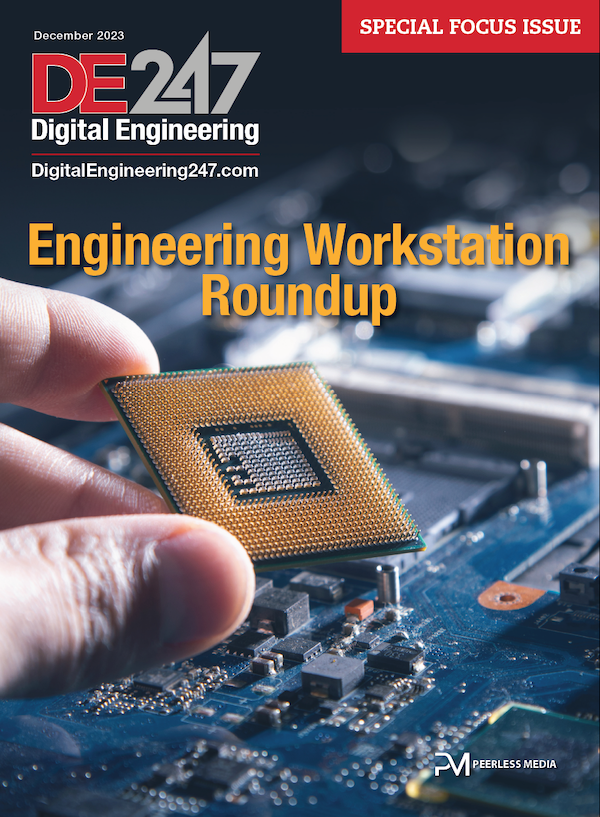Is an iPad in Your Future?
Wait to see the list of third-party applications before you spring for the iPad.
Latest News
February 9, 2010
By Peter Varhol
 Apple’s launch of the iPad tablet computer has excited faithful users of the company’s computers and phones, and has caused software developers and content providers to rethink how they deliver applications and content. It’s likely that many engineers were also watching the iPad to see if it can be useful in their professional or leisure activities.
Apple’s launch of the iPad tablet computer has excited faithful users of the company’s computers and phones, and has caused software developers and content providers to rethink how they deliver applications and content. It’s likely that many engineers were also watching the iPad to see if it can be useful in their professional or leisure activities.
Functionally, the iPad is approximately equivalent to a netbook, the mini-laptop computers that have become popular over the last year. However, Apple has packaged it differently, and more attractively, than a netbook, and Apple customers perceive that the brand itself brings a lot of cachet.
The device incorporates a larger display than a netbook, part of which can be taken up with a virtualized keyboard. Alternatively, you can buy an optional external keyboard. It comes with wi-fi, and you can also get 3G data connectivity as an extra-cost option (the 3G subscription is also separate, but priced in a similar range to that of phone data services). However, there is no phone service with the 3G option, and no way to make a phone call with the iPad beyond using Skype or other Web-based voice-over-IP solutions.
Reading is a big part of the iPad experience. It accepts a popular and open standard e-book format called ePub. You can read any book in that format, or in PDF format, which opens up a wide range of possible reading material. Resolution is excellent, as you might expect of an Apple interface, and it is likely to be easy on the eyes for lengthy reading. The display is in color, which makes it feasible to read Web content for long periods of time.
What the iPad did not do was offer newspapers and periodicals a format or appearance that improves upon current Web page viewing. As one of the rumored goals of the iPad was to make newspapers and magazines relevant once again, the reality falls far short. For Web browsing, the iPad doesn’t support Adobe Flash, which means that a significant portion of Web sites won’t be fully accessible to the device. Apple has no announced plans to support Flash, and does not do so on the iPhone.
There are no standard ports such as Ethernet or USB. There is a single proprietary interface for the optional keyboard, and no other way to connect external devices. Should the iPad do well, I would be willing to assume that there will be a significant market for converter and hub type components to enable users to connect devices such as USB memory and backup storage devices.
The iPad uses a proprietary processor designed by Apple, and is tightly coupled with the operating system. iPhone application developers claim that it will be relatively straightforward to port phone applications to the iPad, although applications will likely have to be modified to take into account different platform features.
Starting at $499 and going up from there as you add more storage, 3G, and other options, the iPad is more expensive than your typical netbook, and you’ll probably find it to be less flexible in terms of work outside of reading. If it’s between the iPad, and the Kindle, strictly for reading, the color display on the iPad may win out, assuming that you’re willing to pay about $120 more for that feature.
Where the iPad has an advantage is in the quality of display, the 3G option (which you can also get as a USB attachment to a netbook), and the potential of its applications. Initial indications are that iPhone developers are interested in expanding their creativity to the iPad, bringing a potentially interesting class of applications to the device.
Without these types of applications, there doesn’t seem to be a compelling functional reason to invest in an iPad at this time. If there are must-have third party applications, the device may do well. Keep an eye on application availability before you make this commitment.
Subscribe to our FREE magazine, FREE email newsletters or both!
Latest News
About the Author
Peter VarholContributing Editor Peter Varhol covers the HPC and IT beat for Digital Engineering. His expertise is software development, math systems, and systems management. You can reach him at [email protected].
Follow DE





